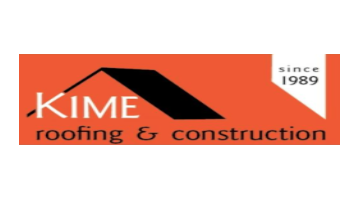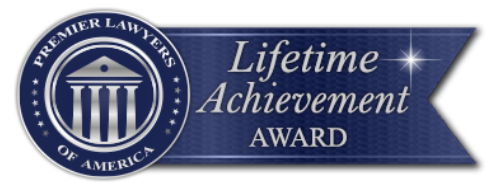WE KNOW CONSTRUCTION LAW
Lovein Ribman is a Texas based construction law firm that represents the construction industry in every county throughout the entire state of Texas. Our firm is led by Board-Certified Construction Attorneys (an honor held by only 135 attorneys in the state) who have been assisting subcontractors, suppliers and vendors with securing payment through the “lien process” for over 15 years. Based on our experience, we believe that there is nothing stronger that you can do to secure and enforce payment than to invoke the lien process. To increase your probability of being paid, begin the process early and retain a Board-Certified Construction Lawyer to assist you. If you are considering taking the first step in the lien process by preparing and serving a Notice of Claim, please contact us for a free consultation by calling our toll-free number at (888) 368-2483 or by submitting the Contact Form. Read below to learn more about the Notice of Claim requirements, deadlines, and commonly asked questions/answers.
WHAT IS A NOTICE OF CLAIM (“INTENT TO LIEN” OR “PRE-LIEN NOTICE”)?
A Notice of Claim is a formal written notice that informs the Property Owner and the Original Contractor (also commonly referred to as the “General Contractor” or “Direct Contractor”) that money is owed to a subcontractor, material supplier, vendor and/or laborer who has provided labor, material, and/or equipment to a commercial or residential Property. The 2022 Texas Property Code, Chapter 53 lien amendments, refer to the Notice as a “Notice of Claim”, but in Texas it is also commonly referred to as a “Pre-Lien Notice,” “Preliminary Notice,” or an “Intent to Lien.” The name or title of the Notice is irrelevant; however, the Notice must contain specific statutory language to be valid and to require the Property Owner to withhold construction funds from the Original Contractor. For residential homestead Properties, several additional statutory notices must be included in the Notice for it to be valid. The Notice must be served before a specific deadline (which is different depending upon if the Property is considered “residential” or “commercial” for lien purposes) or the right to file a lien will be waived. The Notice must also be served by one of the permitted statutory methods of service. For Projects lasting more than 3 months, it is not uncommon (and sometimes required) for a subcontractor, material supplier, vendor and/or laborer to serve more than one Notice during the course of the Project to secure its lien rights. There are additional requirements if the unpaid amount relates to specially fabricated materials (materials designed specifically for a Project that cannot easily be used on another Project) and contractual retainage. Once the Notice has been served, a Lien Affidavit can be filed and served the following day; however, subcontractors, material suppliers, vendors and/or laborers have up until the 15th day of the third month (on residential projects) and until the 15th day of the fourth month (on commercial projects) from when their contract is completed, terminated or abandoned to record the Lien Affidavit. To increase the probability of being paid, the Notice should be drafted by a Board-Certified Construction Attorney (on the firm’s letterhead) in the form of a Demand Letter that references other payment related statutes like the Prompt Payment Act and the Trust Fund Statute.
WHO IS REQUIRED TO SERVE A NOTICE OF CLAIM (“INTENT TO LIEN” OR “PRE-LIEN NOTICE”)?
Anyone not hired by the Property Owner, or the Property Owner’s Agent, must timely serve the Property Owner and the Original Contractor (also commonly referred to as the General Contractor or Direct Contractor) with a Notice of Claim before recording a Lien Affidavit with the County Clerk’s Office. The Notice is “severed” but not recorded or filed with any governmental agency.
WHEN IS THE DEADLINE TO SERVE A NOTICE OF CLAIM (“INTENT TO LIEN” OR “PRE-LIEN NOTICE”) ON A “RESIDENTIAL” PROPERTY?
Original Contractor/Original Contractor (those hired by the Property Owner or Property Owner’s Agent): If you were hired by the Property Owner or the Owner’s Agent, then you are not required to serve or file any Notices before filing your Lien Affidavit on a residential Property. You can move straight to filing a Lien Affidavit. However, you might consider sending a strong Payment Demand Letter before filing a Lien if you think it will resolve the payment dispute.
All Other Claimants: On residential projects, if you were not hired by the Property Owner or the Property Owner’s Agent, then you must serve the Property Owner and the Original Contractor with a Notice of Claim by no later than the 15th day of the second month, for each and every month that you provide labor/material/equipment to the Property and have not been paid.
Example: If you provide labor/material/equipment in January and February and were not paid, then for the work done in January, you must serve a Notice by no later than March 15; for the work done in February, you must serve the Notice by no later than April 15. In other words, you have to notify the Property Owner and Original Contractor each and every month payment has not been made.Inside Tip: In the above example, you could serve just one Notice (combining both months) as long as the Notice is sent before March 15th (which would be the 15th of the second month for the work performed in January). Keep in mind you can always serve a Notice early (and you should), just don’t serve it late.
Warning: A Property Owner is allowed to release final payment (typically withheld statutory retainage) to the Original Contractor within 30 days after completion of the entire Project. Once the Project funds have been released, you can no longer require the Property Owner to withhold funds or place a Lien against the funds. As such, if possible, always serve the Notice (regardless of your final deadline) before the Property Owner releases final payment to the Original Contractor. On residential homestead Properties, the Property Owner is not liable to a Subcontractor or Material Supplier for any amount paid to the Original Contractor (including the withheld 10% retainage) before receiving a Notice of Claim. Again, consider serving the Notice as soon as you expect a payment dispute and before the Property Owner releases final payment to the Original Contractor.
WHAT IS THE DEADLINE TO SERVE A NOTICE OF CLAIM (“INTENT TO LIEN” OR “PRE-LIEN NOTICE” ) ON A “COMMERCIAL” PROPERTY?
Original Contractors (those hired by the Property Owner or the Property Owner’s Agent): If you were hired by the Property Owner or the Property Owner’s Agent, then you are not required to serve or file any Notices before filing your Lien Affidavit. You can go straight to filing a Lien against the Property. However, you might consider sending a strong Payment Demand Letter before filing a Lien if you think it will resolve the payment dispute.
All Others (those not hired by the Property Owner): For commercial projects, the 2022 lien amendments removed the Second Month Notice requirement for anyone not hired by the Original Contractor. Now, all Claimants not hired by the Property Owner or Property Owner’s agent, are required to serve the Property Owner and the Original Contractor with a Notice of Claim by no later than the 15th day of the third month, for each and every month that they provide labor/material/equipment to the Project and have not been paid.
Example: If you provided labor/material/equipment in January and February and were not paid, then for the work done in January you must serve a Notice of Claim by no later than April 15; for the work done in February, you must serve the Notice of Claim by no later than May 15. In other words, you have to notify the Property Owner and Original Contractor each and every month payment has not been made.
Inside Tip: In the above example, you could serve just one Notice (combining both months) as long as the Notice is sent before April 15th (which would be the 15th of the third month for the work performed in January). Keep in mind, you can serve the Notice as early as the first month following the month that you provided the labor/materials. For example, if you provided the labor/material/equipment in March, you can serve the Notice on April 1.
Practice Pointer: To calculate the Notice deadline, do not look to the date of your invoice or the date payment is due under your contract—both are irrelevant. Your sole concern in calculating the deadline from the month that the labor/material were provided to the Property.
Warning: A Property Owner is allowed to release final payment (typically withheld statutory retainage) to the Original Contractor within 30 days after completion of the entire Project. Once it has been released, you can no longer require the Property Owner to withhold it or place a Lien against it. As such, if possible, always serve the Notice (regardless of your final deadline) before the Property Owner releases final payment to the Original Contractor.
HOW IS THE NOTICE OF CLAIM SERVED?
The Notice may be served by any one of the following methods:
Personal Service: You may serve the Notice of Claim (“Pre-Lien Notice”/“Intent to Lien”) by personal delivery to the person entitled to receive the Notice. If you chose to personally serve the Notice, you should consider using an independent process server who can confirm under oath that the Notice was timely and properly served.
By Any Traceable Form of Delivery: Such as Federal Express, or any other third-party private carrier service who can confirm proof of receipt.
Certified Mail Return Receipt Requested: You may serve the Notice by certified mail, with return receipt requested. This is the preferred and least expensive method of service. When served by this method, the Notice is deemed served on the date post marked even if the addressee does not accept or receive the Notice (as long as you can prove the Notice was actually sent to the addressee’s last known address).
Practice Pointer: As an exception to the service rules, if a Notice is actually received by the person who is entitled to receive it, the method used to serve the Notice may be immaterial. In other words, if you failed to properly serve the Notice by one of the required service methods, but can prove it was actually received within the deadline, you should be able to establish that the Notice requirement was satisfied.
New Rule—Weekend and Holidays: Pursuant to the 2022 lien amendments, if the deadline falls on a weekend or legal holiday, then the date is now extended to the next business day.
WHAT ARE THE BENEFITS TO SERVING A NOTICE OF CLAIM AND FILING A LIEN?
A Notice of Claim is the first step in the lien process. When prepared as a Payment Demand Letter by a Construction Attorney, the Notice of Claim may be the only step you have to take to compel payment. However, if recording a Lien Affidavit becomes necessary, it will create a new and additional source to recover payment of the debt. For example, in the event of nonpayment, your first line of recovery would typically be a breach of contract claim against the party who hired you. However, if you timely and properly serve and file all lien documents, then you will have the following additional rights and protections: (1) a Lawsuit to foreclose on the Lien and possibly force a sale of the Property; (2) a Lien against any funds held by the Property Owner and due to the Original Contractor; (3) the possibility of being paid directly by the Property Owner if the Original Contractor does not dispute the amount owed; and (4) if the Property Owner pays the Original Contractor after receiving a timely Notice of Claim (with “fund trapping” language), then the potential right to force the Property Owner to pay twice for your work. The “Lien Process” is also an excellent way to gain leverage in negotiating a resolution of the debt. Moreover, if you file a Lawsuit and prevail on foreclosing the Lien, then you may be entitled to recover all reasonable and necessary attorneys’ fees and costs.
IF I SERVE A NOTICE OF CLAIM, AM I REQUIRED TO FILE THE LIEN AFFIDAVIT?
No, if you serve a Notice of Claim and do not receive payment, you are not required to file the Lien Affidavit unless you want to preserve and pursue your lien rights. It is not uncommon for subcontractors/material suppliers/laborers to serve a Notice of Claim and not go through with filing a Lien Affidavit.
SHOULD I HIRE AN ATTORNEY TO PREPARE AND SERVE MY LIEN NOTICE?
In our opinion, if you can afford to have a qualified construction attorney prepare and serve your Notice of Claim as a Payment Demand Letter on Firm letterhead, then yes you should retain an attorney to assist you for the following reasons: (1) although you are required to serve the Notice to preserve your lien rights, another important reason to serve the Notice is to compel immediate payment and avoid having to record a Lien Affidavit. Retaining a construction attorney to prepare your Notice in the form of a strong Payment Demand Letter should increase the probability of being paid without having to file the Lien Affidavit; (2) when a Construction Attorney prepares/serves the Notice, it conveys the message that you are very serious about being paid and intend to take all necessary steps to ensure payment is made; (3) it makes your company appear more professional than if you prepared the Notice on your own or used an online lien service; and (4) you know the Notice has been properly prepared and served.
SHOULD I USE AN ONLINE LIEN SERVICE TO PREPARE AND SERVE A NOTICE OF CLAIM?
You lose the following advantages by using an online lien service instead of a Construction Attorney: (1) online lien services do not draft their Notices as strong Payment Demand Letters and do not reference other related payment statutes (2) the Notice is not sent from an attorney or on law firm letterhead; (3) the Notice is not prepared by an attorney; (4) the Notice looks and feels like a form, as opposed to a formal demand letter from a Construction Attorney; and (5) you typically will not have an attorney in your corner to advise and negotiate resolution of the payment dispute for you if you use an online lien service.
CAN I RECOVER ATTORNEYS’ FEES AND COSTS?
If you prevail on a commercial lien claim, you are entitled to reimbursement of reasonable and necessary attorneys’ fees and costs. On a residential Project, the Court has the discretion to award attorneys’ fees and costs. From the Notice of Claim through resolution of the payment dispute, we always demand reimbursement of fees/costs. However, the fees/costs to prepare, file and serve all lien documents are very reasonable and worth incurring even if not reimbursed.
IF YOU HAVE PROVIDED LABOR, MATERIAL, OR EQUIPMENT TO A RESIDENTIAL OR COMMERCIAL PROJECT AND HAVE NOT BEEN PAID, PLEASE CONTACT US TO DISCUSS THE LIEN FILING PROCESS AND HOW WE CAN HELP YOU COLLECT YOUR UNPAID INVOICES. FOR NO CHARGE, WE WILL: (1) ANALYZE YOUR LIEN RIGHTS, (2) ANSWER ANY LIEN QUESTIONS, AND (3) RECOMMEND A COURSE OF ACTION.
TEXAS CONSTRUCTION ATTORNEYS
SUBMIT THIS FORM OR CALL (888) 368-2483 TO TALK TO A CONSTRUCTION ATTORNEY

Ruchi Foods

Kime Roofing & Construction


A.F.

John Kendrick

Angie Constancio

Joel Muniz

Mary Ann Than

Emerald Dental Management, P.A.




